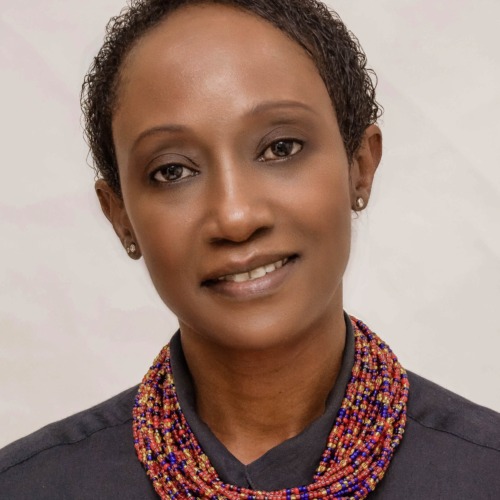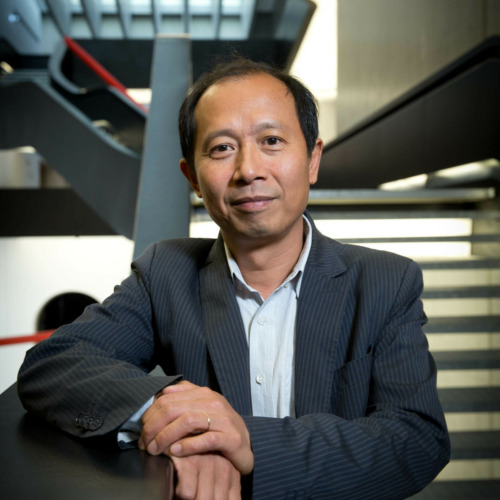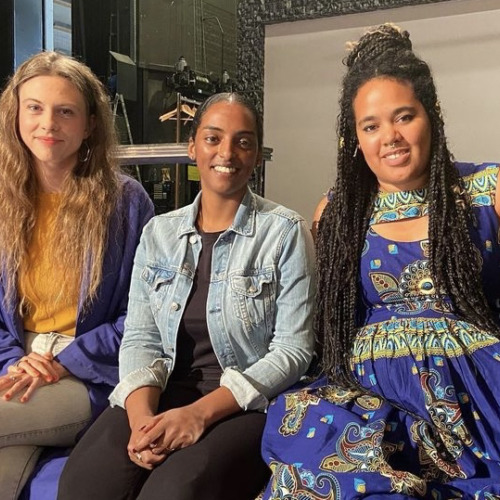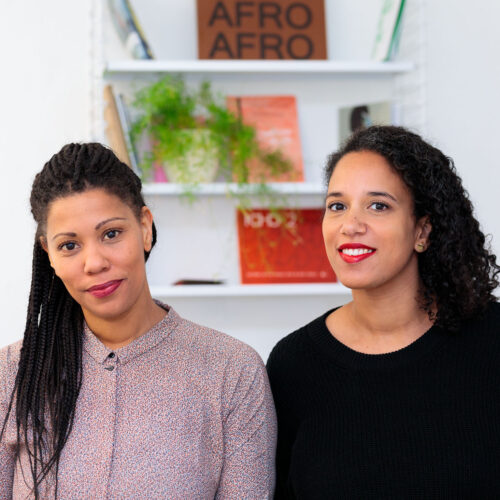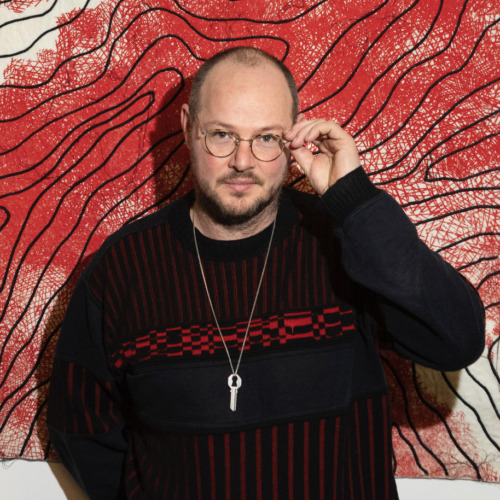Dekoloniale Berlin Residency 2023 in collaboration with C&: AGITP[R]OP!
Deadline: February 7, 2023
Dekoloniale Memory Culture in the City is pleased to announce the third open call for the Dekoloniale Berlin Residency 2023. We invite artists, architects, designers, directors, performers, fashion designers, writers or urban practitioners to apply for a residency at Dekoloniale Memory Culture in the City of Berlin. Applicants are invited to uncover and transform historical colonial stratifications and dominant narratives in Berlin's public space.
In 2023, Dekoloniale Memory Culture in the City will focus on Berlin’s West Side, examining in depth the city districts of Charlottenburg and Wilmersdorf as well as those bordering parts of Schöneberg that historically used to be part of Charlottenburg.
I. AGITP[R]OP AS AESTHETIC REFERENCE
The term »Agitprop« emerged from the Russian Revolution about 100 years ago, linking the words agitation and propaganda to describe art practices that seek to instigate revolutionary social change and radically imagine and project different realities and possible futures. Since then, artists in a wide variety of political and cultural contexts have employed similar creative approaches, suitable for reproduction and wide dissemination. Even though the denomination Agitprop holds a negative connotation for many, Agitprop aesthetics has had an immense impact on international modernist as well as contemporary cultural practices, particularly in visual arts, graphic design, and theater – highlighting its radical potential to instigate social change.
One of Agitprop’s contemporary resonances is Street Art / Urban Art, whose development or even current trends have in turn been heavily influenced by Pop Art. Pop Art motifs are taken from everyday popular culture – the consumer world, mass media, advertising and the like. A common means of entire Pop Art cycles is the reproduction of the same motifs and slogans over and over again. This device is also found in Street Art today: reproduction and repetition of the same or sometimes slightly modified themes/scenarios and modes of expression. We want the residents to think through the historic processes and the liaisons between Agitprop and Street Art / Pop Art when conceptualizing their respective contemporary interventions into the public spheres of West Berlin.
The expressions in visual and performative arts at the intersection of design and political organizing we are looking for thus can be characterized as: reproducible, symbolic, brazen, condensed, emotional and accessible – AGITP[R]OP!
II. CONTENT / THEMES OF THE ARTIST RESIDENCIES
The theme of the collaborative exhibit 2023 »ZwischenWelten / BetweenWorlds« of the Dekoloniale exhibition team in collaboration with the district Museum Charlottenburg-Wilmersdorf in the Villa Oppenheim will also inform and inspire the interventions of the Dekoloniale artist residencies 2023:
ZwischenWelten / BetweenWorlds (working title)
Dekoloniale exhibition on anti-colonial networks in Berlin 1918 - 1933
The Treaty of Versailles of 1919 ended Germany's colonial rule in Africa, Asia and Oceania. In the Weimar Republic that followed, Berlin and Hamburg were able to develop into centers that were of global significance for anti-colonial discourse. Until the onset of National Socialist rule, significant migrant diasporic individuals and communities from the African, Asian, and Arab regions resided in Berlin. Coming from different colonial contexts, they became politically active, forming networks and alliances. They raised criticism of racist modes of representation, carried anti-colonial practices into the city, and from here made demands for national self-determination.
This hitherto marginalized aspect of a decolonial urban history will be pursued in a cooperative exhibition project of »Dekoloniale Memory Culture in the City« and the Charlottenburg-Wilmersdorf District Museum in Villa Oppenheim, the result of which will be presented from September 2023 onwards.
Based on the goals and positioning of Dekoloniale, the main focus will be on representatives from the former German colonies, most of whom hailed from the African continent, and their alliances with actors from other anti-colonial contexts. A second focus will be on cultural-political forms of resistance against racism, colonialism and imperialism. The frame of reference is Berlin between 1918/19 and 1933.
However, questions will also be asked about the feedback of these anti-colonial networks in decolonization and community-building processes after 1945. Central points of reference are the Pan-African movement, the African-Asian conference in Bandung in 1955, and the reappraisal of the history of anti-colonial resistance in the context of the Black Movement of the 1980s in Germany. How relevant was the politicization of Black activists in Berlin and Germany to the Pan-African movement? How did the political and individual connections forged since the Weimar period culminate in Bandung? What did the reappraisal of early Black resistance history in Germany in the 1980s mean and what does it mean for us today?
III. YOUR OPTIONS & CHOICES
The AGITP[R]OP! residencies 2023 creatively connect contemporary art devoted to social change with historic moments in political activism, highlighting activities that seek to motivate broad and diverse publics. Exploring the complexity and possibility of artistic interventions in range, and impact of these artistic practices – including photography, film, prints, banners, fashion, street actions, performance, songs, digital files, or web platforms – the residencies are expected to expand over their run within this unique and dynamic framework.
Your AGITP[R]OP! Artist Residency application should either:
OPTION 1 Highlight the following struggles for social and political justice since the turn of the twentieth century:
- anti-colonial networks in Berlin 1918 - 1933 or
- Bandung and the Pan-African Movements or
- the renaissance and reconfigurations of Black Activism in Berlin of the 1980s
... and possibly connect and contextualize them together.
OR
OPTION 2 Focus on one of the following three specific West-Berlin locations that were crucial for X-community anti-colonial organizing and agitation between 1918-1933:
- The Humboldt House (today: Literaturhaus Berlin), Fasanenstr. 23, 10719 Berlin: From November 1927- December 1930, the villa was used by the Alexander-von-Humboldt Foundation (Foreign Office) as an administrative building. Here the money was disbursed to the foreign scholarship holders. The premises could also be used by international student associations. For instance, there are said to have been offices of Islamia and El Arabiya, and the Islam-Institut also celebrated its founding event here in the fall of 1927. More here (pls scroll down for English version): https://www.literaturhaus-berlin.de/geschichte You also find a related text collection here
- »League Against Colonial Oppression«, later: »League Against Imperialism and For National Independence«; founding address: Bamberger Str. 60, Berlin.
In 1926, the League against Colonial Oppression was founded in Berlin by the German publisher, communist, and chair of the Workers International Relief, Willi Münzenberg. The League organized the »Congress against Colonial Oppression and Imperialism« in 1927 in Brussels. The organization was then renamed »League Against Imperialism and For National Independence«. It was formally disbanded in 1937. At the 1955 Bandung Conference, the League was credited as the start of an eventually successful worldwide movement against colonialism. For further information consult: https://mronline.org/2018/07/20/the-league-against-imperialism-1927-37-an-early-attempt-at-global-anti-colonial-unity/ - Theater »Piscator Bühne« (today Metropol), 5 Nollendorfplatz, Berlin
The anticolonial demonstration, »Koloniale Welt in Flammen!« (Eng: »Colonial world ablaze«) was held at Piscator-Bühne, Nollendorfplatz on March 4, 1928. The event was organized by the »League Against Imperialism« (LAI). Between 1927-31, the theater served as a stage and experimental arena for the theatrical director Erwin Piscator. »Koloniale Welt in Flammen!« fused politics with cultural articulations and was attended by 400 people, out of which about 15 ›British and Dutch Indians‹ between the ages of 22 and 25 took part. Further reading consult: https://core.ac.uk/download/39956824.pdf
The three selected residents are expected to co-create artistic interventions in the public sphere and present them in the framework of the Dekoloniale Festival and the Dekoloniale exhibit in September 2023 and are encouraged to consider hybrid modes of thought, research, and practice. We favor collaborative formats and forms of expression that expand disciplinary boundaries.
Speakers of all mother tongues are encouraged to apply, however please note that the three residents are expected to be able to communicate and collaborate in English. The residents are provided with travel costs, accommodation and a per diem in Berlin throughout the residency period, a production budget for the implementation of the project, and a fee. They will have full access to the Dekoloniale project space, curatorial guidance, and production support depending on needs and availability.
The preparation for the Dekoloniale Residency will already start in March 2023, when active cooperation of the selected residents is required to drive the official approval process of the urban interventions. Therefore please apply only if you are available to communicate and contribute in the months prior. The production of the works in Berlin will take place within the period of mid-June to mid-September 2023, with a final public presentation on September 14-17, 2023 in the framework of the Dekoloniale Festival 2023.
How to Apply
Applicants submit their application to residency@dekoloniale.de
The application process is entirely online.
- A short motivation letter (max. 1 page)
- A short description and visualisation detailing your planned work (max. 1 page)
- estimate production budget
- CV (max. 2 pages)
- Portfolio (max. 10 pages – 5MB)
The application process is entirely online.
Proposals will be evaluated on the following criteria: Their relevance to the tasks as described above, the contribution of the proposed project to the field of decolonial urban practice; on its aesthetic merit – either as a form of knowledge or aspect of design and their feasibility.
APPLY NOW!
---------------------------------------------------------------
MEET THE JURY 2023
Jury Presidents:
We are very excited to announce our two internationally renowned jury presidents who – with their rich varieties of experience, knowledge and perspectives – will be chairing the 2023 jury which will review the submissions for »AGITP[R]OP!« – the Dekoloniale Berlin Residency of 2023:
Hou Hanru, prolific writer and curator
N'Goné Fall, independent curator and cultural policies specialist
Permanent Jury Members:
Nathalie Anguezomo Mba Bikoro, Saskia Köbschall & Tmnit Zere, Nyabinghi Lab
Julia Grosse and Yvette Mutumba, Contemporary And (C&)
Raul Walch, visual artist
Nadja Ofuatey-Alazard and Philipp Khabo Köpsell, on behalf of Dekoloniale
